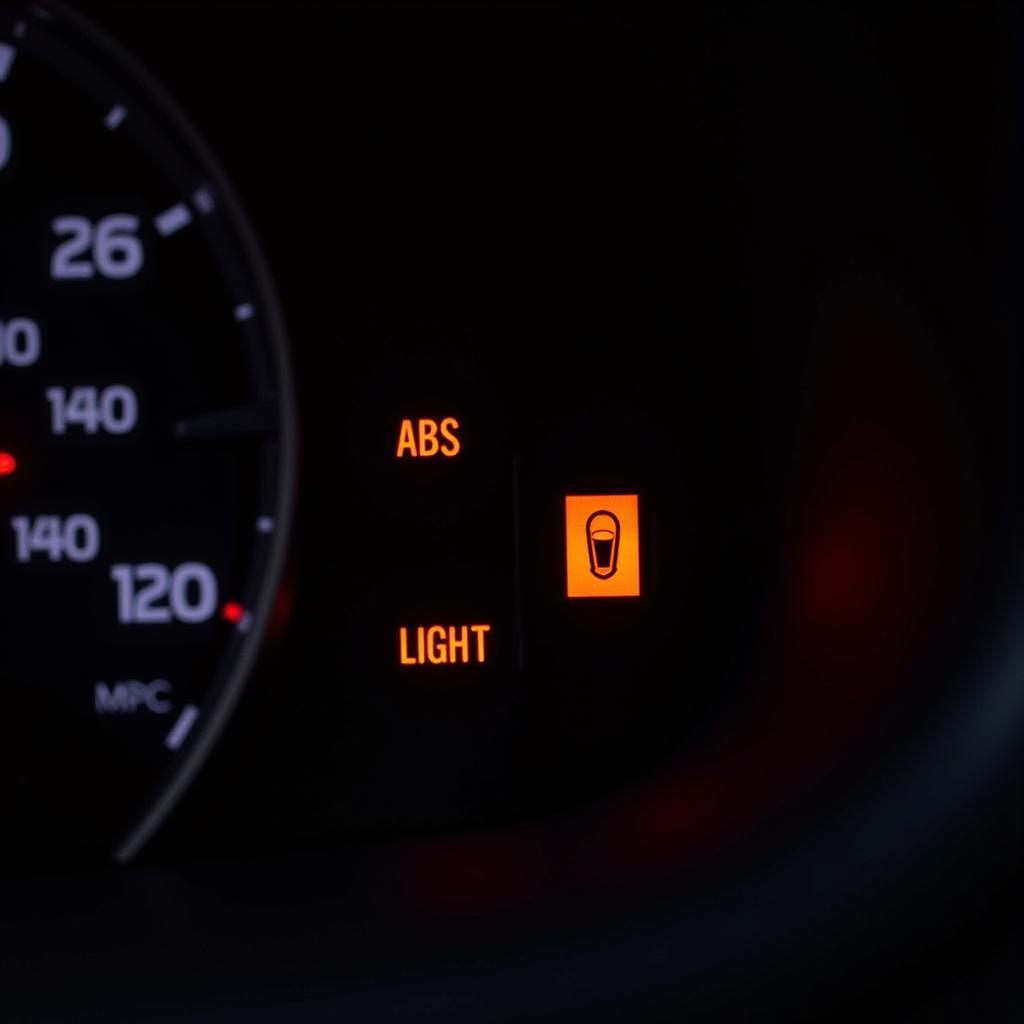Finding out why your car is acting up can be stressful. Is it a minor hiccup or a major engine issue? That’s where a car diagnostic test comes in. This guide walks you through everything you need to know about Where To Get A Car Diagnostic Test, what to expect, and how to make the most of the experience.
Why You Might Need a Car Diagnostic Test
Modern vehicles are complex machines with intricate computer systems. When your check engine light illuminates or your car displays unusual behavior, a diagnostic test is the first step towards pinpointing the issue.
Here are some common reasons why you might need a car diagnostic test:
- Check Engine Light: This is the most obvious sign. It could be anything from a loose gas cap to a problem with your catalytic converter.
- Unusual Noises: Grinding, squealing, knocking, or any other out-of-the-ordinary sounds could indicate a problem.
- Performance Issues: Stalling, rough idling, decreased fuel efficiency, or difficulty starting can all be symptoms of underlying issues.
- Warning Lights: Besides the check engine light, other dashboard warning lights like the ABS or airbag light could also indicate the need for a diagnostic test.
 Car Dashboard Warning Lights
Car Dashboard Warning Lights
Where Can I Get a Diagnostic Test on My Car?
You have several options when it comes to getting a car diagnostic test, each with its own pros and cons:
1. Mechanics
Pros:
- Expertise: Mechanics have the knowledge and experience to diagnose and repair a wide range of car problems.
- Comprehensive Service: They can typically handle both the diagnosis and repair, saving you time and effort.
- Specialized Equipment: Many mechanics have advanced diagnostic tools that can provide more detailed information.
Cons:
- Cost: Mechanic labor rates can be expensive.
- Potential Upselling: Some mechanics might recommend unnecessary repairs.
2. Auto Parts Stores
Pros:
- Convenience: Many chain auto parts stores offer free or low-cost diagnostic tests.
- Quick Turnaround: These tests are often quick, providing you with basic code readings.
Cons:
- Limited Scope: The free tests usually only provide basic codes and might not pinpoint the exact problem.
- No Repairs: Auto parts stores typically don’t perform repairs, so you’ll need to go elsewhere.
3. Mobile Mechanics
Pros:
- Convenience: They come to you, saving you time and hassle.
- Transparency: You can often watch the process and ask questions directly.
Cons:
- Cost: Mobile mechanics often charge a premium for their services.
- Limited Services: They may not have access to all the equipment needed for complex repairs.
4. DIY with an OBD2 Scanner
Pros:
- Affordability: OBD2 scanners are relatively inexpensive.
- Control: You have complete control over the process and the information.
Cons:
- Technical Knowledge Required: You need some understanding of car mechanics and diagnostic codes.
- Misinterpretation: Misinterpreting codes can lead to unnecessary repairs or further damage.
Understanding Car Diagnostic Tests: What to Expect
Most vehicles manufactured after 1996 have a standardized On-Board Diagnostics (OBD-II) port. A diagnostic test involves connecting a scanner to this port, which then reads and displays trouble codes stored in the car’s computer.
These codes correspond to specific issues, but it’s crucial to remember that they are starting points, not definitive diagnoses.
Here’s a breakdown of the process:
- Connecting the Scanner: The technician connects a scanner to the OBD-II port, usually located under the dashboard on the driver’s side.
- Reading Codes: The scanner retrieves diagnostic trouble codes (DTCs) stored in the vehicle’s computer.
- Interpreting Codes: The technician interprets the codes, considering your car’s make, model, and specific symptoms.
- Further Inspection: In many cases, further inspection, testing, and troubleshooting may be necessary to pinpoint the exact problem.
Tips for Getting the Most Out of Your Car Diagnostic Test
- Be Prepared: Note down any unusual noises, warning lights, or performance issues you’ve experienced.
- Ask Questions: Don’t hesitate to ask the technician to explain the codes and the recommended course of action.
- Get a Second Opinion: If you’re unsure about a diagnosis or repair recommendation, it’s always a good idea to seek a second opinion.
- Research Codes Yourself: While it’s best to rely on professional expertise, researching the codes yourself can provide a better understanding of the potential issues.
 Mechanic Discussing Diagnostic Results with Customer
Mechanic Discussing Diagnostic Results with Customer
Where to Get a Free Car Diagnostic
While most mechanics charge a fee for diagnostic tests, there are ways to get it done for free or at a reduced cost:
- Check with Auto Parts Stores: As mentioned earlier, many auto parts stores offer free basic code readings.
- Look for Promotions: Some mechanics offer free or discounted diagnostic tests during promotional periods.
- Ask about Diagnostic Fees: Before agreeing to a diagnostic test, inquire about the cost and whether it’s applied to the repair cost if you choose to have the work done there.
When Do You Need a Car Diagnostic Test?
Don’t wait for a major breakdown. It’s best to get a car diagnostic test as soon as you notice any unusual symptoms. Early detection can often prevent more serious and costly repairs down the line.
Where Can I Get a Diagnostic Test For My Car: Choosing the Right Option
The best place to get a car diagnostic test depends on your specific needs and budget.
- For basic code readings and quick checks: Auto parts stores are a convenient and often free option.
- For comprehensive diagnostics and repairs: Mechanics offer expertise and specialized equipment.
- For convenience and on-site service: Mobile mechanics bring the diagnostics to you.
- For hands-on control and affordability: DIY options with an OBD2 scanner are suitable for those with technical knowledge.
Getting a car diagnostic test is an essential part of responsible car ownership. It provides valuable insights into your vehicle’s health, enabling you to address problems promptly and keep your car running smoothly.
FAQs About Car Diagnostic Tests
1. How long does a car diagnostic test take?
The time can vary depending on the complexity of the issue. Basic code readings can take a few minutes, while more in-depth diagnostics might take an hour or more.
2. Will a diagnostic test drain my car battery?
No, a diagnostic test uses very little power and should not drain your battery.
3. Can I drive my car with the check engine light on?
While you might be able to drive for a short distance, it’s best to get it checked as soon as possible. Ignoring the warning light could lead to further damage.
4. How much does a car diagnostic test cost?
Costs can vary widely. Auto parts stores often offer free basic code readings, while mechanics might charge a fee, which can range from $50 to $200 or more.
5. Can I clear my own check engine light?
While you can clear the light yourself with a scanner, it’s not recommended unless you’ve addressed the underlying problem. Clearing the codes without resolving the issue will only be a temporary fix.
Need more information about where to get a car diagnostic test done? Check out our other resources:
- Where to get a car diagnostic test done
- Where can i get a diagnostic test on my car
- Where can i get a diagnostic test for my car
- Where to get free car diagnostic
- Where to get a free diagnostic test for your car
Remember, if you need help figuring out what’s wrong with your car, our team is here to help! Contact us via WhatsApp at +1(641)206-8880 or email us at [email protected]. We offer 24/7 customer support.

Leave a Reply